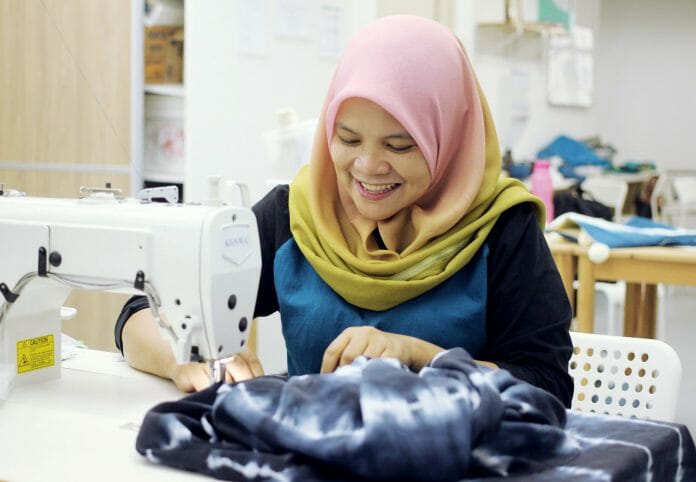By Sofea Azahar
Among the vulnerable groups impacted by the imposition of Movement Control Order (MCO) due to the unprecedented health crisis, households headed by women in low-income group (B40) in Malaysia have appeared to be at social and economic disadvantage relatively to households in general.
By definition, women-headed household refers to a household in which an adult female is the main or the only income earner and decision-maker.
Unfortunately, there is no official statistics to display the overall percentage of women-headed households in the country. So, why does such issue need to be raised?
It caught my attention after the release of UNICEF-UNFPA study report conducted in May-June 2020 on 500 families living in low-cost flats (Program Perumahan Rakyat) located in the capital, focusing on the impact of Covid-19 crisis on the wellbeing of women and children in urban poor families known as Families on the Edge.
Let’s go through some of the revealed statistics which can prove my point.
In this study whereby 40 percent are single mothers, majority of the women-headed households (50 per cent) were expecting worse financial condition in the next six months, 31 per cent were uncertain while only 2 per cent of the respondents thought their financial status would be better off.
In terms of unemployment among low-cost flat residents, women-headed households recorded a significant double-digit figure of 32 per cent compared to the national unemployment rate of 5.3 per cent in May! This was much higher than last year’s unemployment rate of 9 per cent for women-headed households.
To make it worse, a large share of women-headed households lacks social protection – EPF and Socso – to help them cushion against economic shocks (57 per cent) based on the data in 2019. For this year, the study had shown that only 21 per cent of the total respondents have lost their job and have access to employment protection are female.
Furthermore, when it comes to savings, more than half women-headed households are unable to save and even if 24 per cent of them said they are able to save, half of them are only able to keep their savings in less than a month and 30 per cent will last for a month.
For the children in this type of household, there remains to be an education barrier in the midst of education sector transitioning to online learning during the MCO – 56 per cent of respondents responded that they have no equipment while 45 per cent said they have no Internet access.
So, these gloomy statistics based on the ground reality suggest that there must be actions taken to try to cushion the difficulties experienced by this vulnerable group.
In the short-term economic recovery plan (Penjana), it cannot be denied that there are stimulus measures which have benefited this group particularly the direct cash assistance such as childcare subsidies, Bantuan Prihatin Nasional (BPN) payouts as well as targeted one-off cash assistance for single mothers but these are all again, short-term support for the group.
What is needed now is a long-term and sustainable solution for them to sustain their livelihoods and it includes providing food on the table for their children. But how?
A wish list was included in the report based on the respondents’ feedback with regard to the possible solutions – full-time employment, increase in the quantum of assistance and other channels of long-term assistance.
Therefore, government’s next initiative, perhaps, should revolve around the wish list and to be announced in Budget 2021 in November.
Using data provided by the Statistics Department, one way to go about it is by introducing a women-headed household empowerment programme targeted for the B40 group. This initiative can be spearheaded by the Ministry of Women, Family and Community Development and parked under the National Women Policy.
It should consist of capacity building programmes to fully tap on their potentials while providing them education such as upskilling and reskilling programmes, and entrepreneurship development programmes. Special working opportunities designated for the eligible recipients can also be provided through the programme.
Besides that, incentives should be given to those who are setting up new businesses and the micro-credit loan requirement should also be eased for the entrepreneurs.
Finally, with the ability of the head of household to earn incomes then only it will help with the education gap for children of the household – parents can afford to purchase digital devices for e-learning or they can subscribe to broadbands for Internet access.
This should be one of the action plans considered by the government and it could also involve other stakeholders. Hopefully it can be as successful as the empowerment programme (Pekka) pioneered by Indonesia since year 2001.
At the end of the day, women do make significant contribution to the society and nation by earning a living for her household as an employed wage earner, creating jobs as an entrepreneur, and hold big responsibilities in taking care of the children and elderly.
Sofea Azahar is Research Analyst at EMIR Research, a think tank focused on strategic policy recommendations based on rigorous research.









